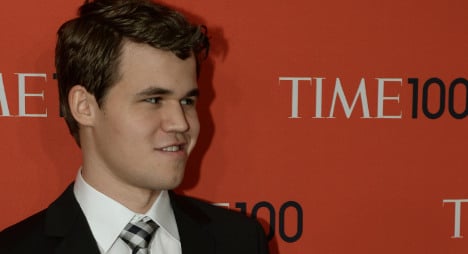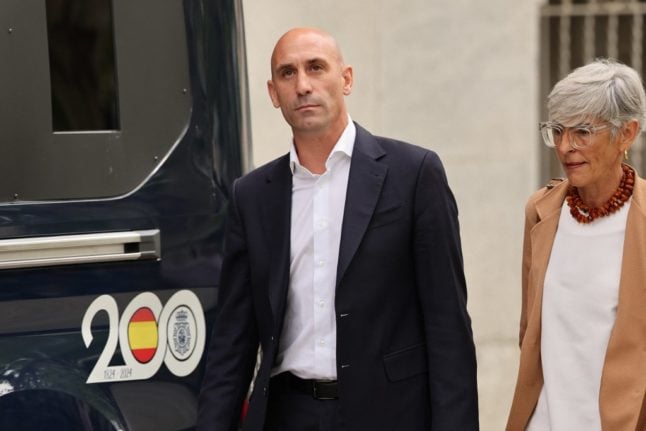The Norwegian world number one earned his maiden world title on Friday when he defeated reigning champion Viswanathan Anand of India in the 12-game challenge match in Chennai.
Carlsen, who turns 23 on November 30, missed out on becoming the youngest world champion by a few weeks, a record set by his one-time coach and Russian legend Garry Kasparov in 1985.
Kasparov, the undisputed world champion from 1985 to 1993, described Carlsen as a Harry Potter-type "super-talent" who is the first Westerner to hold the world title since America's Bobby Fischer in 1975.
"Magnus rocketed to the top of the rating list almost without pause, displaying a consistency and tenacity rare in a young player to accompany his limitless talent," Kasparov wrote in the Business Insider earlier this month.
Carlsen has dominated the World Chess Federation's list of top players in the last three years, with a top rating of 2,870 points that broke Kasparov's best of 2,851 points achieved in 1999.
"Magnus is a very different player and his approach is refreshingly new," American chess grandmaster and former Olympic champion Susan Polgar told AFP, with his aggressive tactics on show throughout the bouts with Anand.
Introduced to chess by his father, Carlsen showed off his genius as a toddler.
At the age of two, the self-taught prodigy knew by heart all the car brands and later memorised the long list of all Norway's municipalities, with their flags and administrative centres.
Sibling rivalry with one of his older sisters sparked his interest in chess, which soon led to his first competition at the age of eight.
The breakthrough came in 2004, when the 13-year-old defeated Russian former world champion Anatoly Karpov, forced Kasparov to a draw and became a
grandmaster.
The dishevelled and serious looking teenager was once described by the Washington Post as the "Mozart of chess".
A fashion model in his spare time, Carlsen made it to the Time magazine list of the 100 most influential people in the world in 2013.
He also won the Chess Oscars, awarded by Russian chess magazine '64' to the world's best player, for four consecutive years from 2009 to 2012.
Carlsen admits two weaknesses: not being a good winner or a good loser.
"You cannot be a number one in the world and be a good loser," he told reporters in Oslo last month. "I'm not a good winner either. I try not to rub it in to my opponents. Unless they deserve it, of course."
Worried he may fall sick in India during the title bout, Carlsen and his team visited Chennai in August to check out the facilities in the southern coastal city.
By the end of the three-day visit, Carlsen's team had forced organisers to insert an "illness" clause in the contract by which a player can take a two-day break if he fell sick.
All-India Chess Federation secretary V. Hariharan said it was the first time an illness clause had been included for a world championship match.
Despite his overwhelming dominance over the last few years, Carlsen warned rivals his best was yet to come.
"I still have so many ways to improve," he said. "In every tournament, in almost every game, I find that I make mistakes.
"I definitely have some kind of talent but I don't know exactly what it consists of."



 Please whitelist us to continue reading.
Please whitelist us to continue reading.
Member comments